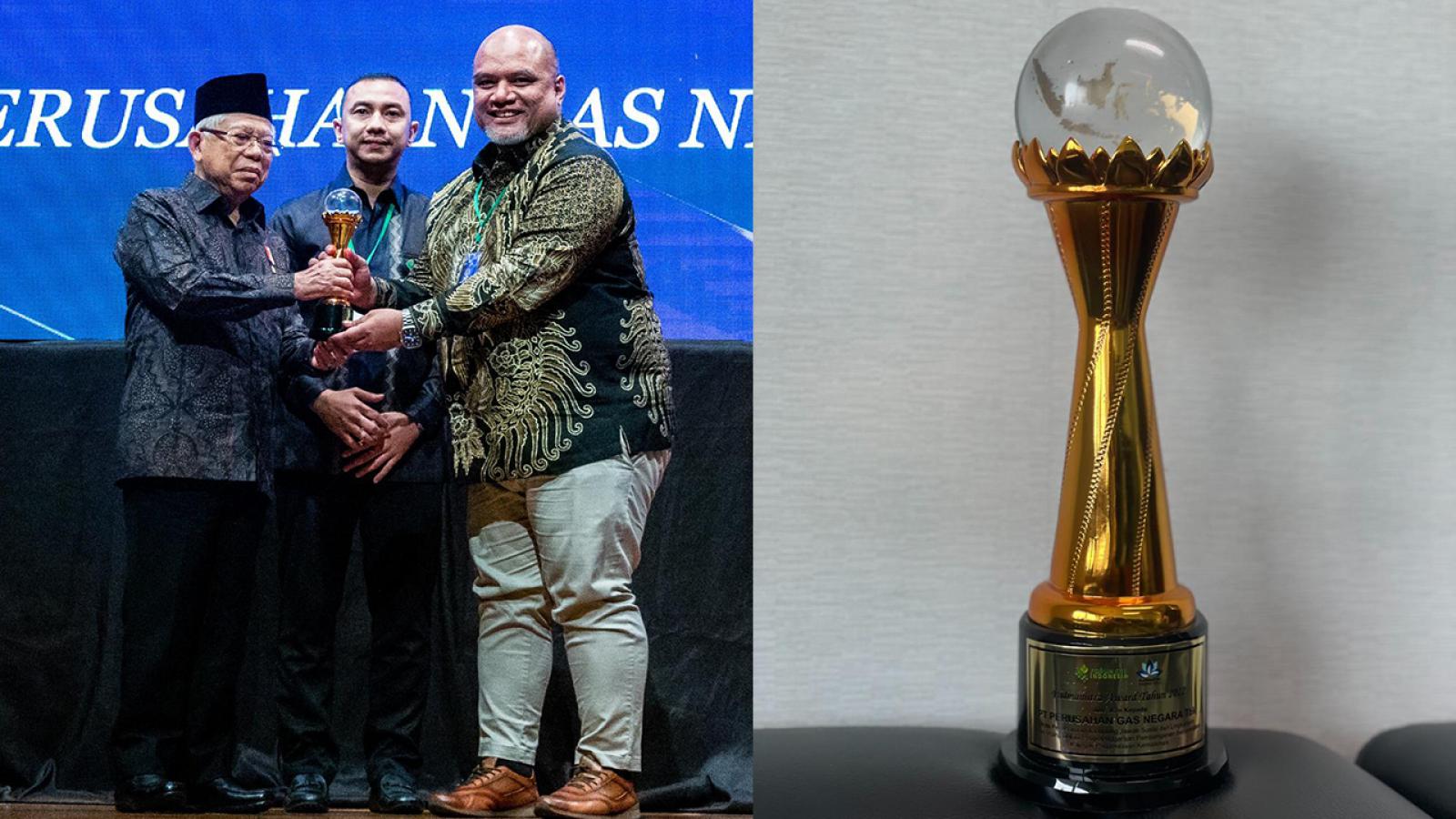Successfully supporting rubber farmers of Pagar Dewa, PGN secures Padmamitra Award 2022

JAKARTA – PT PGN Tbk (PGAS), as a gas subholding of Pertamina, through its Corporate Social & Responsibility (CSR), designs the Desa Kaya program for Pagar Dewa Village. This program is the prioritised CSR program of PGN in order to promote the power of rubber farmers in Pagar Dewa Village, which is a profession dominating the local community.
The CSR program of PGN in Pagar Dewa Village managed to eliminate poverty, thus being rewarded with the Padmamitra Award 2022 held by Forum CSR Indonesia. PGN receives an award for the Implementation of Corporate Social and Environmental Responsibility in the Sustainable Development, under the category of Poverty Elimination.
The award was given directly by Vice President of Indonesia, Ma’ruf Amin, and was received by the Director of Strategy and Business Development of PGN, Harry Budi Sidharta, last Wednesday (5/7).
The Desa Kaya program by PGN in Pagar Dewa Village managed to generate various innovations, including new methods and technology that are applied in the rubber plantation for the first time. This is also the first and the only initiative started by a company in the oil and gas distribution cluster in Indonesia.
Initially, PGN conducted social research towards the community of Pagar Dewa. The area of the rubber plantation in Pagar Dewa Village is approximately 4,500 hectares out of the total 7,520 hectares of Pagar Dewa area. Thus, 59% of the natural resources of Pagar Dewa Village has rubber plantation commodities.
According to the monography data, 1,842 people work in the rubber plantation field out of the total villagers of Pagar Dewa that reach 2,003 people.
However, the natural resources, in the form of vast rubber plantations, as well as human resources, in the form of workers in the rubber plantation industry, are not immediately equal to power for rubber farmers in Pagar Dewa Village. Several issues and challenges experienced by rubber farmers in Pagar Dewa Village often lead to new long-term problems.
According to the research result, the challenges faced by the rubber farmers include fertiliser procurement. Rubber farmers have a hard time to gain access to subsidised fertilisers, whereas non-subsidised fertilisers are quite pricey. Furthermore, rubber farmers face limitations in managing nursery and the production of organic fertiliser specifically tailored for rubber.
“To respond to these challenges and problems faced by rubber farmers of Pagar Dewa Village, PGN workers in Pagar Dewa Station deliver an idea to establish a Farmer Cooperative Unit that could supply affordable fertilisers. The farmers could also utilise a fertiliser credit system to reduce their costs come the fertilising period,” Sidharta explained.
PGN realises this plan through the Development Plan Forum (lit. Musyawarah Rencana Pembangunan/Musrenbang) as a place for local people to channel their aspirations, critiques, and suggestions.
Sidharta further mentioned that the establishment and the guidance of Farmer Cooperative Unit in Pagar Dewa Village by PGN has been operating since 2016. The cooperative unit offers affordable fertilisers and may use credit for payment.
The fertiliser credit system in the Farmer Cooperative Unit of Pagar Dewa Village includes 8 rounds of instalments. The payment period takes place during the weighing of rubbers, once to twice a week. With this system, the farmer may pay in instalments within 2 months.
“Many programs have been carried out to support the empowerment of rubber farmers. The activities include training for organic fertiliser production, accompanies with the training of rubber nursery by utilising top variety seeds from Sembawa, Musi Banyuasin,” Sidharta added.
Other innovations are creating liquid organic fertiliser from banana sheath, bamboo shoots, mojo fruits, coconut water, to leftover rice. These materials are processed in certain way and fermented, resulting in liquid fertiliser beneficial for the rubber plantation. The production process is also cheaper and easier.
In 2022, PGN initiated social and education innovation programs regarding fertilisation to rubber farmers in Pagar Dewa Village. This program is intended to solve the problem regarding the access towards fertiliser and the utilisation method.
PGN joins hands with different parties in this Desa Kaya program, including rubber farmers, education institutions, village-owned businesses, local communities around Pagar Dewa Village, local government, and PGN employees.
The training and capacity increase by PGN allows the community to manage their rubber plantation land better, more effective, and more environmentally friendly, as they utilise organic fertilisers and use top variety seeds. Economically speaking, rubber farmers gain easier access towards credit without pressuring them.
“Desa Kaya program is one of PGN’s Corporate Social and Environmental Responsibility Programs. This CSR of PGN has a priority to support corporate business and government projects. The empowerment of community in Pagar Dewa Village that has been a success and received an award is expected to be realised to other empowerment programs of PGN in the area surrounding the operational area,” Sidharta concluded. (PGN/ZH)